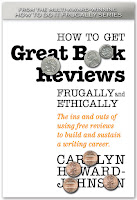A Review of HellWard by Theresa Rodriguez
Title: HellWard: The English Cantos Volume One
Author: James Sale
Genre: Poetry
146 pages
Independently Published
ISBN: 979-8654151919
Released June 2020
$10.02 (Paperback)
Purchase on Amazon
Reviewed by Theresa Rodriguez
I had the pleasure of listening to James Sale read each of his twelve Cantos of HellWard through his Wider Circle YouTube videos, which was a riveting experience. Then I had perhaps the even more riveting experience of reading the book, which I did in one day. The language is so compelling and the story so interesting that I could not put it down!
HellWard is a journey of the mind and spirit whereby the author, in a series of visions, is guided by no less than the great Dante himself through various wards of hell. Within these wards he encounters an array of people from his past, as well as world leaders, philosophers, and poets.
In HellWard we find powerful, often disturbing language, at the same time raw and refined, beautiful and at times jolting in its honesty. What struck me particularly throughout the book is the way Sale uses mono-syllabic words to powerful effect: death, hell, pain, depth, weak, guts, ache, dark, gunk, blight, flesh, tears, stench, dread, blood, hiss, oozed,“clots of gore” (a wonderful image), cries, groans, filth, swill, “smelt the blood” (another wonderful image), skull, skin, bone, ice, heat, hot, bare, raw, mess, froth, “dark webs,” “hard knots”, guilt, “black holes,” blotch, stank, bleak, slop, “greed and pride and lust,” and “sick slime.” Each of these words are like little pinpricks, jabbing the sensibilities over and over again as one reads through the text.
I was deeply affected by many passages in HellWard. These few examples impressed me particularly:
In Canto Two, James is seeing his mother in hell:
“My hair electrified, raised up in shock;
My tongue cleaved to the roof of my mouth;
I could not speak, seemed my whole being locked,”
And in this poignant passage we read about his dysfunctional relationship with her:
“How I longed, despite it all, just to feel
She loved me, and that deeply she approved;
My whole life waiting, and hoping she will
At last say words that mean, truly, I am loved.”
In Canto 3 we have a vivid and disturbing scene of a former friend's sperm-bank babies:
“'Hi James,' he said, emotionless and waste.
'I'd knew you'd find me; knew you'd like my work.'
What work? I thought, Then heard some sullen sobs:
The walls themselves had faces in, each hurt--
Each face half-formed, deformed, and like a yob's
Made so through lack of love and fatherhood,
But each one spoke, as one collection, mob;
Each one deprived of anything called good
So each one cried and tried to finger-point,”
There is a fine alliterative passage in Canto 5:
“And Marlene's hair, once red, now growing shoots
Of flecked and flecking grey, like fine, foamed froth,”
And a beautiful passage on prayer in Canto 6:
“And I at last in the wide interval
Unfroze and found myself creating prayer.”
Dante's advice to James in Canto 7 is skillfully rendered:
“What's solid materialises here;
In mortal life cause and effect may not
Always manifest as a conjoined pair;
Delay may be profound, prolonged, such that
The superficial mock, see that as proof
No order is, or word established fiat;”
As well as is this passage:
“Where is my guide? Was that someone I dreamed?
How lonely being lonely felt.”
In Canto 9, we find another striking image:
“...we drowned
In his rich sop of words that, as I say,
Echoed in double froth, doubled rebound,”
The book is full of intensity and movement, and there is much more ready to to read and savor.
One technical aspect of Sale's writing that intrigued me is is use of imperfect rhyme. As he says in the interview which follows the Cantos: “Of course, the key is not to set oneself the misguided task of insisting on perfect rhymes, since our language is not as rich in them as Italian.” Hence we have such combinations as “breaker,” “beaker,” and “features”; “other,” “further,” and “together”; and “fish,” “crush,” and “flesh.” I have been fairly rigid in my own rhyming philosophy but reading Sale's work has inspired me to play around with a little more flexibility in my rhyming in the future.
This collection of twelve Cantos is the pinnacle of achievement by a master poet. Sale has managed to interweave a vibrant personal narrative with current topics of interest such as mass murder, Brexit, and modern poets and philosophers. It is a rich and intense reading experience. I highly recommend it to anyone with an interest in Dante, classical poetry, or social commentary.
James Sale’s website is https://jamessalepoetry.webs.com
More About the Reviewer
Theresa Rodriguez is the author of three books of poetry: Jesus and Eros: Sonnets, Poems and Songs (Bardsinger Books, 2015), Longer Thoughts (Shanti Arts, 2020), and Sonnets, a collection of sixty-five sonnets (Shanti Arts, 2020). Her work has appeared in such journals as The Scarlet Leaf Review, The Wilderness House Literary Review, Spindrift,Mezzo Cammin, The Wombwell Rainbow, Serotonin, The Road Not Taken, and the Society of Classical Poets Journal. Her website is http://www.bardsinger.com, where you can view videos of her performance poetry and find information about her books. Follow Theresa on Instagram and Twitter @thesonnetqueen.

This blog is a free service offered to those who want to encourage the reading of books they love. That includes authors who want to share their favorite reviews, reviewers who'd like to see their reviews get more exposure, and readers who want to shout out praise of books they've read. Please see submission guidelines on the left of this page. Reviews and essays are indexed by genre, reviewer names, and review sites. Writers will find the search engine handy for gleaning the names of small publishers. Find other writer-related blogs at Sharing with Writers and The Frugal, Smart and Tuned-In Editor.








